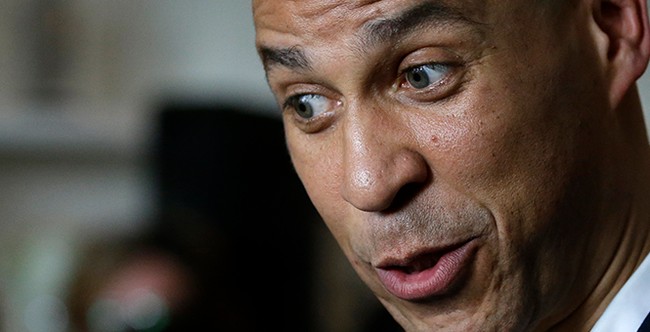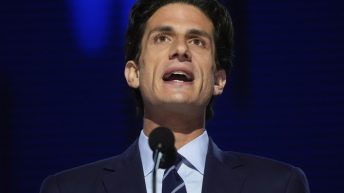Sen. Cory Booker openly suggested that Senate Minority Leader Chuck Schumer’s position is shaky, saying the “Democratic party needs change” and “It needs a new generation of leaders to stand up to [President Donald] Trump.” The exchange came after the end of the recent funding fight that critics call the Schumer Shutdown, and Booker’s remarks are drawing attention because they admit what Democrats have been hinting at privately.
Booker’s comments landed in a moment when the party is trying to regroup after a self-inflicted crisis over spending and leadership. From a Republican perspective, the admission is refreshing because it acknowledges the failures that led to the shutdown without spinning it into a policy victory. Voters are tired of politicians who dodge responsibility, and Booker’s candor makes it clear even some Democrats see the need for new direction.
The senator told Fox News that Democrats need a different approach and new leaders willing to stand up to Trump, repeating the lines “Democratic party needs change” and “It needs a new generation of leaders to stand up to [President Donald] Trump.” Those exact words underscore a broader recognition within the party that older strategies and established leadership did not prevent the chaos that followed the budget standoff. Admitting the problem is one thing; fixing it is another.
Katie Jerkovich covers politics, culture, and entertainment for RedState and previously wrote at The Daily Wire and The Daily Caller.
Republicans have been pointing out for months that leadership on the left failed to deliver practical results and instead prioritized intra-party battles that alienated swing voters. Schumer’s tenure has been marked by high rhetoric but limited legislative wins, and critics say that pattern culminated in the recent shutdown drama. Booker’s remarks serve as confirmation for those who argued the Democratic leadership had become disconnected from the priorities of working Americans.
The political fallout from the shutdown is still unfolding, but its immediate consequence was a loss of public trust that both parties now must reckon with. While Democrats debate leadership changes internally, Republicans are presenting a contrasting message: competent governance and fiscal responsibility. That contrast matters at the ballot box, and GOP strategists will use Booker’s comments to highlight what they call Democratic dysfunction.
Booker’s framing — calling for a new generation of leaders — also reflects an internal struggle over the party’s identity. Some Democrats want a leftward shift focusing on progressive priorities, while others favor a centrist course aimed at reclaiming swing districts. From the right, the inconsistency looks like an admission that Democrats lack a unified, effective plan to handle budgetary and immigration issues that voters consistently list as top concerns.
Voters outside the political bubble often judge parties by results, not rhetoric, and the shutdown episode handed Republicans a clear talking point: when Democrats control leadership but can’t prevent a budget crisis, who bears the blame? Booker’s observation that change is needed is a tacit admission that current leadership failed to protect the party’s standing. Republicans will emphasize that reality to contrast what they call steady stewardship with Democratic turmoil.
Political insiders expect the debate over Schumer’s future to intensify, but public perception is already shaped. The takeaway for many is simple: the party that can’t manage its own house won’t inspire confidence in running the country. Booker’s comments echoed that sentiment and added fuel to the argument that fresh faces or new tactics are necessary if Democrats hope to appeal beyond their base.
How the Democrats handle this moment matters for the next cycle, and the party’s choices will be scrutinized by voters who remember the shutdown’s effects. Republicans are likely to frame any leadership shake-up as proof positive that Democrats are in disarray and ill-equipped to put governing first. For those who value clear responsibility and predictable governance, Booker’s candid admission reinforces existing criticisms.
Ultimately, the conversation about Schumer’s tenure has moved from whisper networks to public scrutiny, and Booker’s lines—”Democratic party needs change” and “It needs a new generation of leaders to stand up to [President Donald] Trump”—have made that shift undeniable. Whether the Democrats respond with decisive leadership that restores confidence or with more internal maneuvering remains to be seen, but the political advantage from this moment will not be ignored.





Add comment